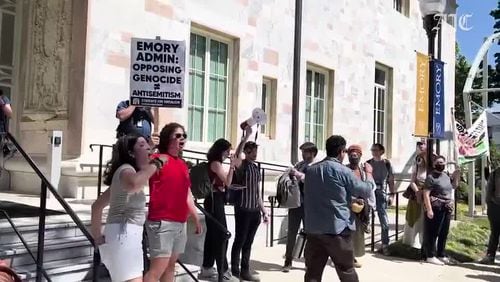IN-DEPTH COVERAGE
How education fares in a community affects more than students and teachers. Economic well-being and quality of life also can see an impact from how schools are progressing. The Atlanta Journal-Constitution has been following the growth of charter schools in metro Atlanta and Georgia in recent years, including what that means for public school systems.
Fulton County's school system is moving to get more charter schools started, using a Request for Charter Proposals (RFP) process that's the first of its kind in the state.
The RFP spells out specific goals for new schools in particular communities. The solicitation for a new charter school in South Fulton, for example, focuses on improving graduation rates in Hapeville’s Jo Wells Instructional Facility. Last May, Fulton issued its first RFP, which created two charter schools: the Latin Schools, which focus on classical education and college readiness, on Metropolitan Parkway.
The initiative is only in its second year, but Fulton schools' chief strategy and innovation officer Ken Zeff believes it is a move "in the right direction" that helps increase choice for parents.
“It’s part of a larger reform strategy for our charter system,” Zeff said, citing the creation of more magnet schools, contract schools (a charter and magnet blend) and school governance councils as part of that strategy. “We’re trying to equip our district schools to have more options.”
Fulton County Schools is the largest charter system in the state, with nine startup charter schools in the 2014-2015 school year. Other large metropolitan school systems such as Chicago’s use RFPs for charter school petitions, which can be submitted by community groups or companies.
Fulton's past two RFPs have focused on South Fulton, which has a 35,000 student population that is growing. South Fulton is the county's weakest academic area, however, with only two of 28 schools performing above the district average on state standardized tests.
“The students there are assigned to a large comprehensive high school, and so because kids learn in different ways, we wanted another option,” Zeff said.
Hapeville Mayor Alan Hallman said creating more charter schools in South Fulton could improve the area’s economic development, and smaller school settings, instead of larger “mega-schools,” might improve students’ education.
“I think one of South Fulton’s weaknesses has been low performance in our schools,” he said. “The RFP gives us a vehicle to address that on a local level … Charters tend to involve more parental involvement, and when you’ve got parents and the community involved, you’re more likely to succeed.”
Hallman is part of the founding board of Hapeville Academy, one of three potential schools at the Jo Wells Center whose backers have submitted petitions in response to Fulton’s RFP. Hapeville Academy proposes a partnership with a higher education institution, allowing students to earn associate’s degrees in high school.
The RFP helps create schools in “charter deserts,” specifically in South Fulton, according to Louis Erste, the Georgia Department of Education’s associate superintendent for policy on charter schools. “It marries the need or the demand to the supply,” he said. “It’s very dramatic.”
“Fulton is evening the playing field between north and south,” Erste said, noting that communities in North Fulton have been more active in forming charter schools than South Fulton. “The district now does a lot of the work” for communities “and makes it easy for the residents to do it.”
Zeff said the desire is to provide an “equity of choice throughout the district,”and the focus on South Fulton came from looking at data and the schools’ performance.
“We’re aiming at areas of our district where children are underserved,” he said. “It’s not about taking anything away from our district schools, but we want to create more options.”
When asked if Fulton’s focus on charters meant its traditional schools were failing, Zeff answered in an email, “We are proud of our district’s growth over the past few years, but these RFPs are a recognition that it is our obligation to provide high quality educational options for all our students, whether they are offered by traditional public school, charter, magnet, or other public partnership.”
He said, “We’re trying to pushing decision-making as much as possible to local schools and local communities. We have a belief in the community having a say. Choice becomes a natural extension of that belief.”
Erste said that Chicago’s charter school RFP “has had such a tremendous impact on the economic development in the area and the outcomes for students, if the same thing happens in Fulton County, it would be fantastic.” Fulton “doesn’t have to do this, but it shows the level of commitment they have for this idea.”
Karen LeCates, a North Fulton parent whose child goes to Centennial High School, said the RFP means greater choice for Fulton’s varied population. “We have an incredibly diverse population, and those populations have different requirements,” she said. “Centralization doesn’t work. So, I think we need to decentralize that and allow schools to tap into the community and see what they want.”
About the Author





